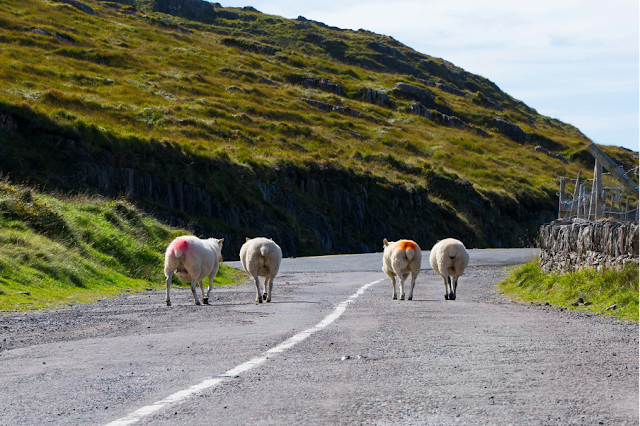Where is your desert, your wilderness?
The Temptation of Jesus
First Sunday of Lent 2020 - Reflection on the Gospel
Matthew 4:1-11
This Sunday’s Gospel presents one telling of Jesus’ testing or temptation. It is an event recorded in each of the synoptic Gospels.
Just prior to this passage, Saint Matthew recounts that Jesus sees ‘the Spirit of God descending like a dove and coming down on him’ (27:16). In today’s Gospel, this same Spirit leads Jesus out into the desert to be put to the test by the devil. Only after his forty day fast, when Jesus is hungry, does the tester approach.
The devil’s twice-repeated taunt, ‘if you are Son of God,’ is not a doubt regarding Jesus’ identity. At the Jordan, all present had heard the voice from heaven proclaiming clearly who Jesus is: ‘my Son, the Beloved’ (27:17). Rather, this is a question of how Jesus will exercise his Sonship, of how he will live and indeed how - or whether - he will die. Later, as Jesus hangs on the cross, this same taunt echoes again ‘if you are God’s son’, along with the goading challenge ‘save yourself’ (27:40, 43-44), a ringing indictment of how greatly misunderstood both Jesus’ sonship and his fidelity to the Father’s will remain throughout his life.
In today’s Gospel, at the outset of Jesus’ public life, that fidelity is tested. The devil tempts Jesus with choices. The initial temptation seems relatively mundane and harmless, even sensible. Jesus is hungry. The devil suggests loaves of bread. Subsequent temptations carry more serious implications. Jesus has been alone for forty days. He is encouraged to test God’s watchful care. Jesus has endured the bleakness of the desert. The devil offers him splendour and all the kingdoms of the world.
What the devil offers Jesus is in stark contrast to what the mission of God’s son requires. Jesus must choose between living as the devil proposes or in the manner necessary for doing God’s will. The two are incompatible. Were Jesus to countenance the devil’s temptations, the kingdom of Heaven would be usurped by the value system of this world. The devil’s vision of Sonship is not shared by Jesus whose rejection of this hints at the difficult and surprising route set out for the long-expected Messiah, God’s anointed one.
Rejecting all that the devil offers, Jesus is once again seemingly alone in the desert. However, the promise of Scripture, quoted earlier by the devil, is fulfilled now: ‘suddenly angels appeared and looked after him.’
In the desert, Jesus meets the devil. But God is there too. It is the Spirit of God who leads Jesus into the desert and it is God’s angels who come to look after him.
However it seems, Jesus is not alone there, not without God. The same is true for us.
Where is your desert, your wilderness?
For many of us, silent stillness is a wilderness we do not want to enter. When we give ourselves space and time, when we are silent and still, our certainties can begin to crumble and doubts to set in. Our sense of self, our confidence, our trust in our decisions all come into question and we come face-to-face with painful emotions, our anger, our fears, our unresolved grief and hurt. All that makes up the ground on which we imagine our lives are built starts to feel shaky and less solid than we had thought.
This Gospel shows that we need not fear or avoid whatever it is that makes up our personal wilderness. We can risk traversing that shaky place, trusting that God will meet us there.
Perhaps, see this Lent as an opportunity to risk. Enter those wilderness spaces where you don’t know where you stand. Dare to allow yourself be led into the desert of silence and solitude. Trust that God is there.
This Lent, reclaim stillness and peace, turn down the volume of busy-ness and distraction and listen.
This Lent, stop. Run away from doing and being busy. Move instead towards God by making time for doing nothing. Be open to finding God and being found by Him.
Find in God’s Word and in silence, nourishment and an antidote to a busy world. Only here can our hunger for true happiness be satisfied.
‘One does not live on bread alone but on every word that comes from the mouth of God.’




Comments
Post a Comment
Thank you for reading my writing. I'm interested to hear your thoughts - please share.